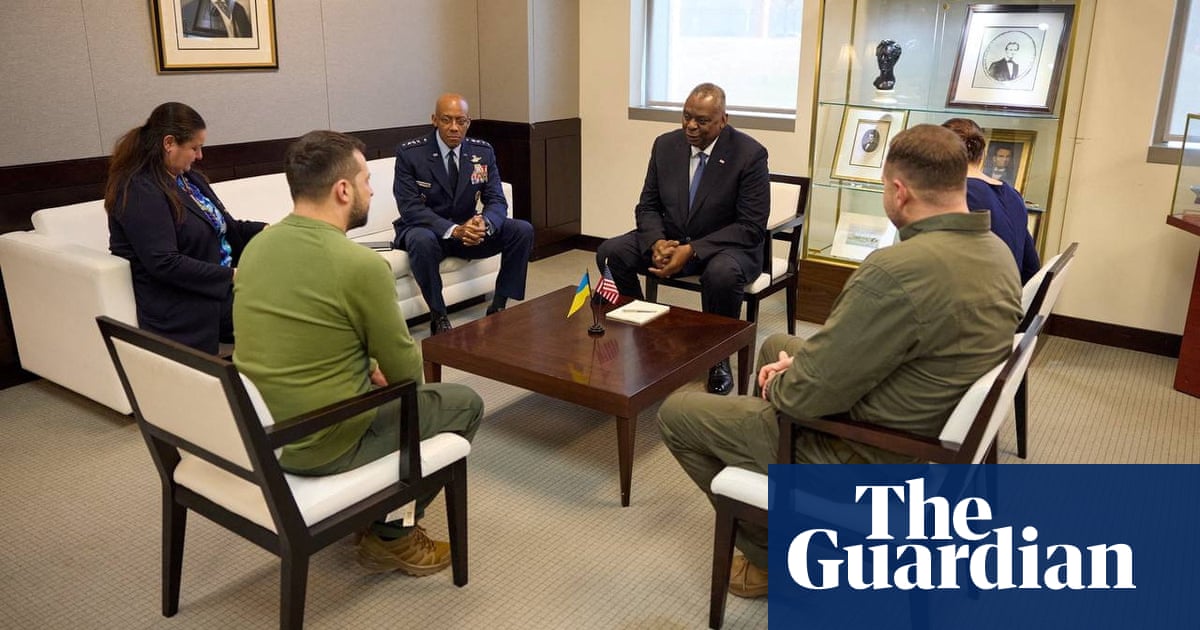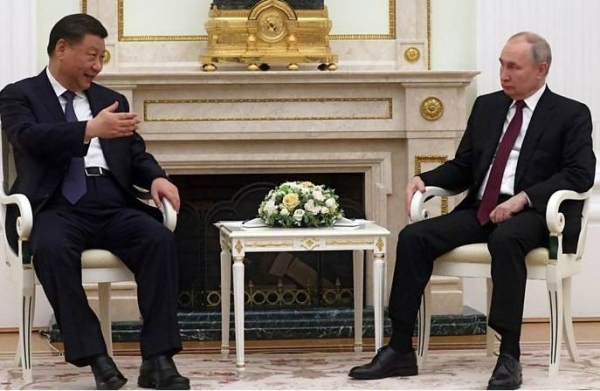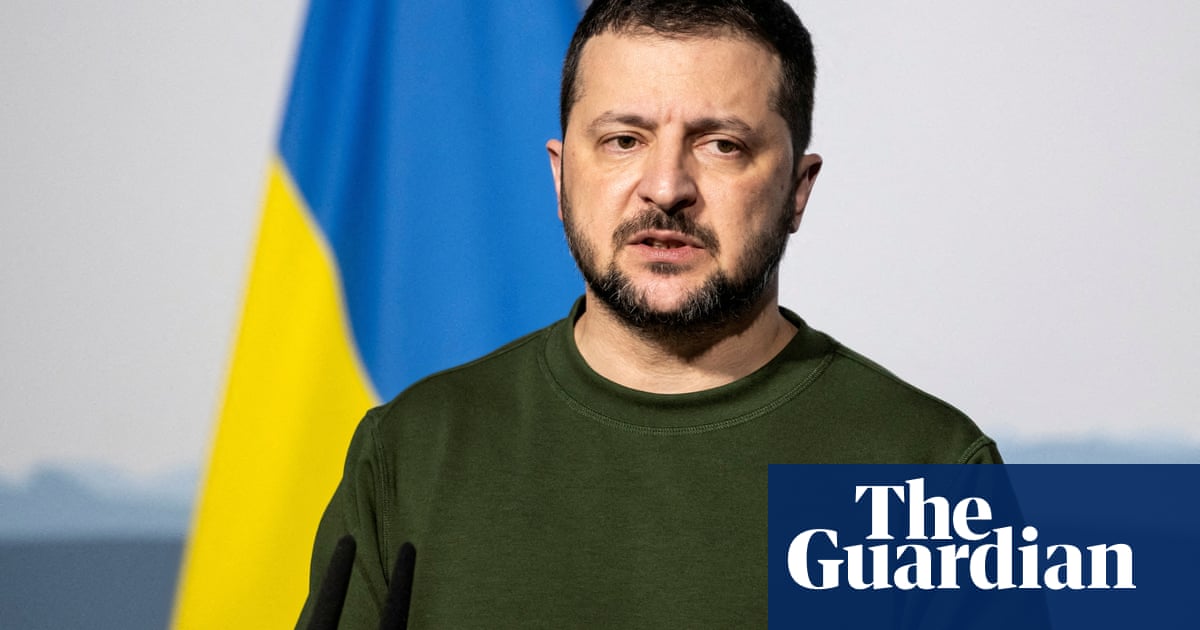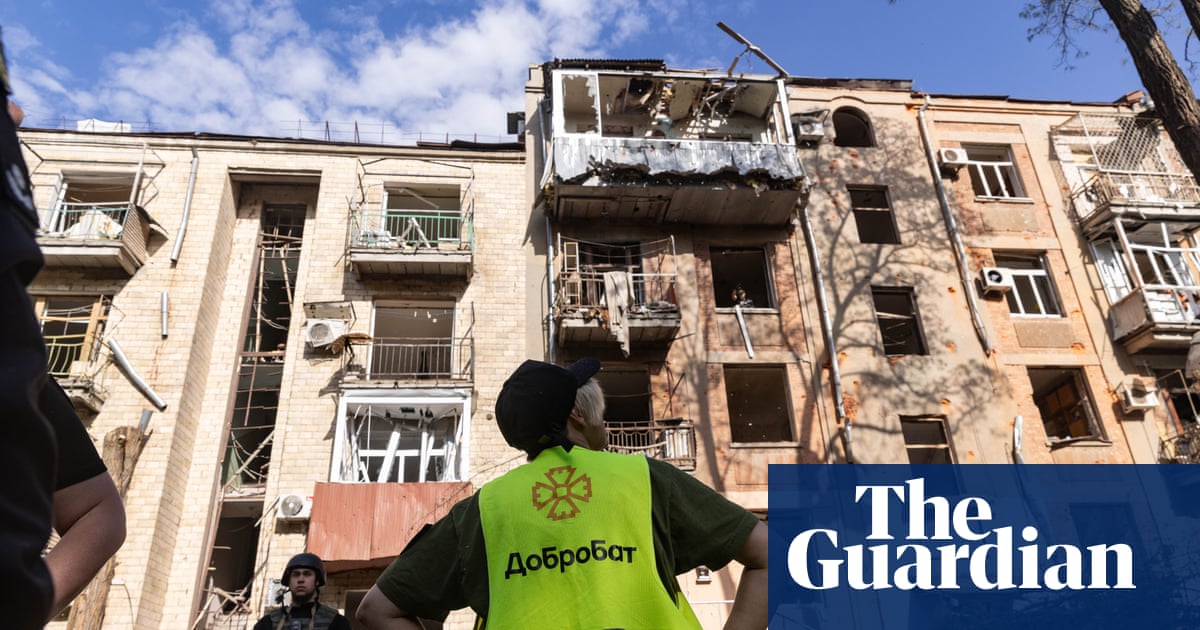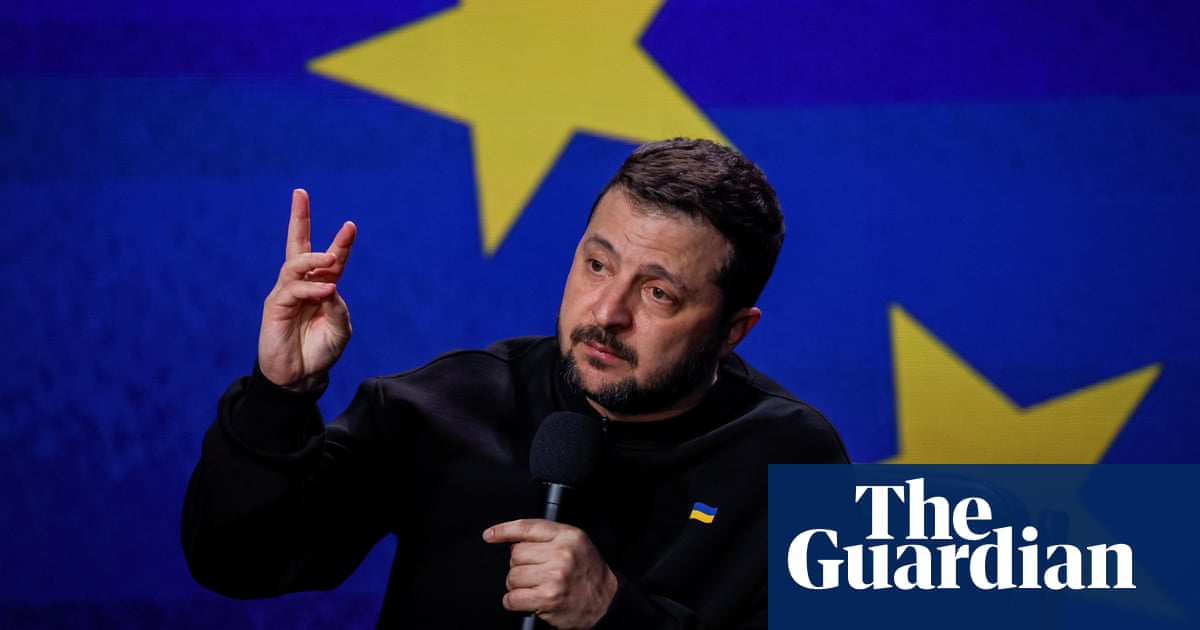
The leaders of Ukraine and Russia have struck a defiant tone and vowed to reach their military goals as the war heads toward its third year.
Speaking in Kyiv during his end-of-year press conference, Volodymyr Zelenskiy sought to boost the domestic mood and maintain western support that has been stuttering in recent weeks.
The moments come as Kyiv’s two biggest allies, the US and the EU, failed to approve two separate support packages. The EU, however, delivered a political boost last week by agreeing to open formal membership talks with Ukraine.
“I am certain US and European financial support will continue,” Zelenskiy said at the start of the conference. “I’m confident the US won’t betray us,” he said, as he faced tough questions from the Ukrainian and international press.
When asked about a possible Donald Trump presidency next year, the Ukrainian leader said any decrease in international support for his country could have a “very big impact on the course of the war”.
There have been fears in Kyiv and the west that under a Trump presidency, the US would curtail its support for Ukraine and improve Russia’s negotiating position.
Nevertheless, Zelenskiy rejected notions that the country was heading towards defeat after Kyiv’s lacklustre counteroffensive this summer, with Russian troops now on the offensive across several fronts.
Instead, he insisted that Ukraine had been in a tougher position since the conflict began in February 2022 and said that Ukraine could win more quickly if it remained resilient. “With regards to the battlefield, Russia hasn’t gotten any result from this year,” Zelenskiy said.
He said he would not drop his aim to restore Ukraine to pre-2014 territory, including the return of Crimea, but added that battlefield tactics could be changed after “careful consideration” of the results of military operations this year.
Amid reports of troop shortages, Zelenskiy said the Ukrainian military had asked him to mobilise an additional 450,000-500,000 people, but that a final decision had not been taken.
“I said that I would need more arguments to support this move. Because first of all, it’s a question of people; second, it’s a question of fairness; it’s a question of defence capability; and it’s a question of finances.”
The Ukrainian leader, however, indicated he agreed to reduce the age of mobilising non-reservists from 27 to 25, but said he was against mobilising women.
There have been rumours of growing infighting between Zelenskiy and top military figures including his commander-in-chief, Valerii Zaluzhnyi. When asked by journalists about the reported tensions, Zelenskiy said he had a “working relationship with Zaluzhnyi”.
Meanwhile in Moscow, Putin told defence officials that in Ukraine he would “not give up what is ours”, while claiming the Russian military had momentum.
“Our troops are holding the initiative,” Putin said, during the end-of-year meeting with his defence leadership. “We are effectively doing what we think is needed, doing what we want.”
Discussing possible peace talks over Ukraine, Putin said that they would have to be negotiated “based on national interests”, adding: “We will not give up what is ours.”
During his carefully orchestrated year-end press conference last week, Putin took a hardline stance that demanded Ukraine’s unconditional surrender, calling for the “denazification of Ukraine, its demilitarisation and neutral status”.
Putin’s recent speeches have been marked by growing confidence after Kyiv’s failed summer offensive, and delays in US and EU military aid to Ukraine have already forced its troops to scale back some military operations, further lifting the mood in Moscow.
Appearing to point to Putin’s recent statements, Zelenskiy on Tuesday said: “If Russia says its war goals have not changed, that shows they do not want peace.”
“No one knows when this war will end,” Zelenskiy said, adding that the topic of peace talks was currently “not feasible”, referencing Russia’s continued willingness to “kill”.
Taking the stage in Moscow before Putin, the country’s defence minister, Sergei Shoigu, said he aimed to increase the army to 1.5 million personnel, in another sign of Russia’s intention to prolong the fighting in Ukraine. Moscow was already expected to double its defence spending target to $100bn next year, a third of all public expenditure.
A declassified US intelligence report released last week assessed that the Ukraine war had caused the death or injury of 315,000 Russians, or nearly 90% of the personnel Moscow had when the conflict began.
Shoigu also said that the Russian army had lain 7,000km (4,300 miles) of mines along the 2,000km battlefield, a tactic that has proved instrumental in Moscow’s efforts to thwart Ukraine’s counteroffensive.
Observers took note that Shoigu did not mention a possible troop rotation in the coming year, ignoring a growing number of angry partners of mobilised military personnel who have urged Putin to demobilise their husbands who have been fighting in Ukraine for more than a year.
Putin, who will run for Russian president again in March, last week similarly said that there would be no need for the military to announce a new round of mass mobilisation.
Sergei Markov, a popular blogger and former adviser to the Kremlin who appears frequently on Russian state television, said that Putin’s statement on Tuesday presented an offer to the west to negotiate peace over Ukraine on Russian terms.
“Russia is getting stronger every month. We propose therefore to the west to accept all our conditions and make peace now. If not, we will finish off the Ukrainian armed force and take more by force than we are ready to take by peace,” Markov wrote on his Telegram channel.




